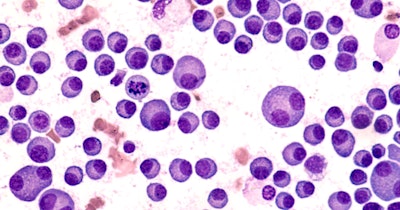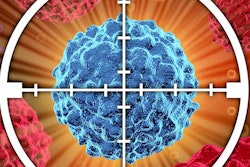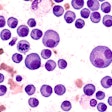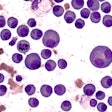
Researchers have used genetic, treatment, and clinical data to improve prediction of the prognosis of patients with multiple myeloma.
Some patients with the blood cancer only live for months while others are still alive after more than 10 years. This heterogeneity creates a need for ways to predict the prospects of individual patients. Physicians originally classified multiple myeloma based on the amount of cancer present. However, the accuracy of those models has decreased as targeted drugs such as immunotherapies have come to market.
If a patient is eligible for a genetically targeted treatment, they can have a good prognosis even if the cancer is already widespread at the time of diagnosis. Researchers at Sylvester Comprehensive Cancer Center identified a need to incorporate the impact of new treatments into prognostic tools.
The result, which is described in a paper in the Journal of Clinical Oncology, is a prediction model for individualized risk in newly diagnosed multiple myeloma (IRMMa). The model is designed to incorporate treatment options and prognostically relevant genomic and time-dependent features to predict the risk of individuals, rather than defining risk for groups of patients with similar features.
Using a repository of genomic drivers in 1,933 patients with newly diagnosed multiple myeloma, the researchers expanded existing models and identified 12 distinct biological groups. The scientists picked out 90 genes with mutations that drive tumor growth and assessed how patients with different genetic sequences fared with the range of treatments now available in multiple myeloma.
To validate IRMMa, the collaborators used 256 patients to compare the model to existing approaches. The study found IRMMa is more accurate than existing prognostic methods. That improved accuracy may enable physicians to more reliably predict survival and help inform their choice of treatment.
As a deep learning model, IRMMa is designed to keep improving as it ingests more data. Francesco Maura, an assistant professor at Sylvester and first author on the study, is looking for other groups with multiple myeloma data that can help improve the model.
“This model can only grow with the help of the research community,” Maura said in a statement. “The next challenge is to keep feeding it with the right datasets so at a certain point it will be usable for clinical purposes.”

















